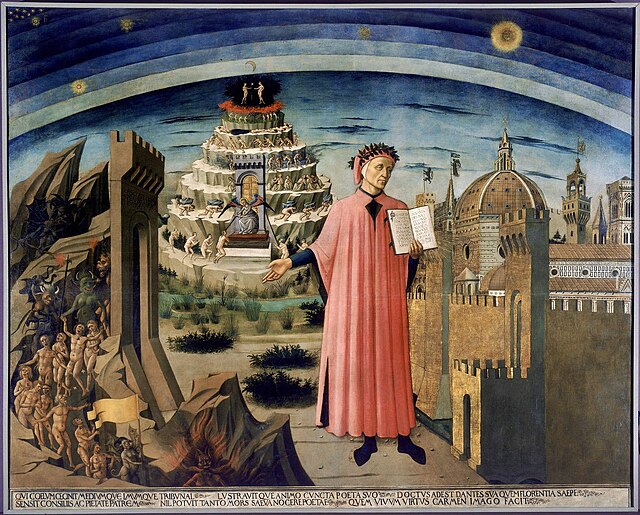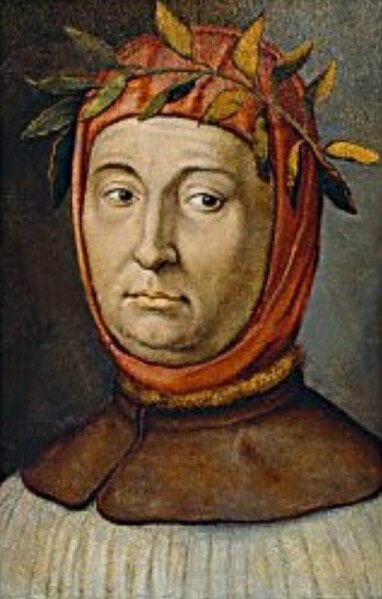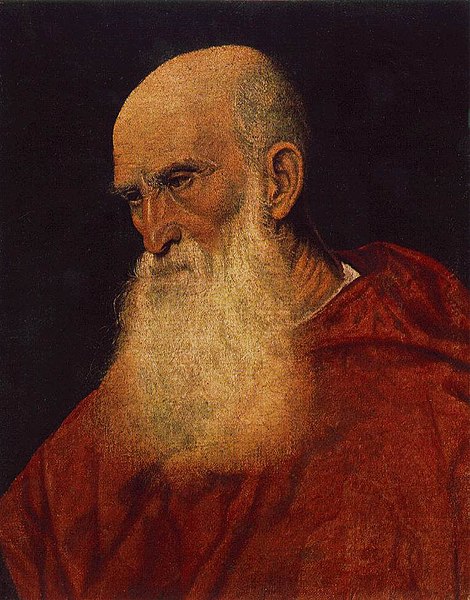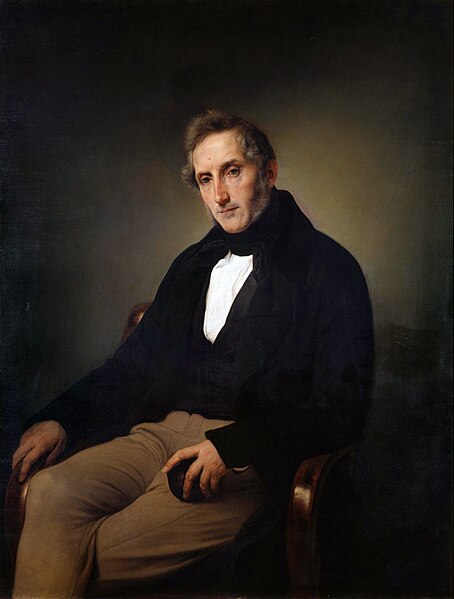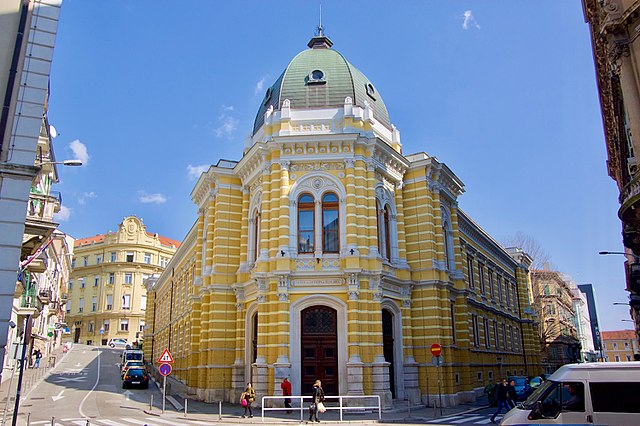The Divine Comedy is an Italian narrative poem by Dante Alighieri, begun c. 1308 and completed around 1321, shortly before the author's death. It is widely considered the pre-eminent work in Italian literature and one of the greatest works of Western literature. The poem's imaginative vision of the afterlife is representative of the medieval worldview as it existed in the Western Church by the 14th century. It helped establish the Tuscan language, in which it is written, as the standardized Italian language. It is divided into three parts: Inferno, Purgatorio, and Paradiso.
Dante shown holding a copy of the Divine Comedy, next to the entrance to Hell, the seven terraces of Mount Purgatory and the city of Florence, with the spheres of Heaven above, in Domenico di Michelino's 1465 fresco
Dante gazes at Mount Purgatory in an allegorical portrait by Agnolo Bronzino, painted c. 1530
Virgil
Beatrice
Italian is a Romance language of the Indo-European language family that evolved from the Vulgar Latin of the Roman Empire. Italian is the least divergent Romance language from Latin, together with Sardinian. Spoken by about 85 million people including 67 million native speakers (2024), Italian is an official language in Italy, San Marino, and Switzerland, and is the primary language of Vatican City. It has official minority status in Croatia and in some areas of Slovenian Istria.
Dante Alighieri (top) and Petrarca (bottom) were influential in establishing their Tuscan dialect as the most prominent literary language in all of Italy in the Late Middle Ages.
Venetian Pietro Bembo was an influential figure in the development of the Italian language from the Tuscan dialect, as a literary medium, codifying the language for standard modern usage.
Alessandro Manzoni set the basis for the modern Italian language and helping create linguistic unity throughout Italy.
Italian Secondary School in Rijeka/Fiume, Croatia

